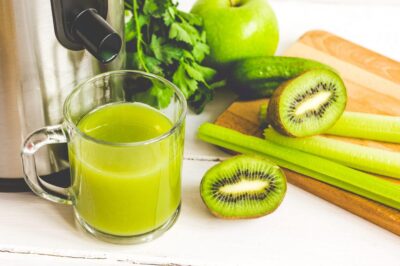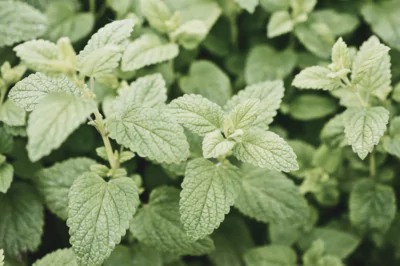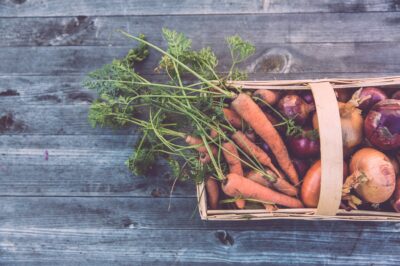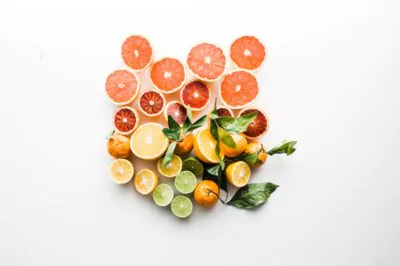Whether you’ve been reading us for a while or today is your first venture into the Annmarie Skin Care blog, one thing is pretty clear—we’re a health conscious bunch, internally as much as externally. We watch as the diet fads come in and out and do what we can to help you stay focused on the goal: living healthy.
Here are 13 habits that we have seen around that are touted as being healthy for you and while many of them aren't inherently unhealthy, many of them create a focal pathway that can make us laser in on an action rather than maintaining the fluidity that it takes to live a healthy, happy life.
1—Counting Calories
Depending on your height, weight, gender, level of activity, and your unique body, you need to eat a specific amount of calories to maintain your body weight (usually between 1500-2500). While it’s true that eating less calories than what it takes to keep your body burning can help you lose weight, healthy dieting is much more involved than just the numbers game. Just counting calories without creating a diet plan full of whole foods can result in missing out on key nutrients your body needs to maintain health during your diet.
If you're really wanting to focus on calories, spend a little bit of extra time researching the amount of calories your unique body needs with a tool like this nutrition data calorie calculator. It will offer you suggestions for the nutrition your body needs and how many calories from each of the main types of nutrients you should have. Make yourself a diet plan that focuses on using whole foods to reach your unique nutrition goals for weight loss or maintenance.
2—Big Dinners
How often do you skip breakfast and then (maybe) lunch too because you figure you’ll just eat a big dinner later and have the energy your body needs for your 24 hour day. While we can think of our nutrition on a wake/sleep cycle or a 24 hour nutrition basis, we should also be cognizant of what time we're eating our meals.
If you eat a big dinner, your body starts working to digest it right away and what comes after dinner for so many of us? Bedtime.
Eating large at the end of the day means you’re giving your body energy and work to do while it should be resting and rejuvenating. Eating a meal before bed can cause issues with getting good sleep and since you’re just laying down and not using up all the calories you consumed, it may be storing those calories as fat.
Try flipping the script—fuel your body with a larger meal in the morning so you can wake up and have that energy throughout the day. Eat a healthy lunch with protein that can sustain you until the evening and plan you dinnertime around your evening plans. If you're going to party and you expect to be up all night, eat large, if you're going to bed after you eat, drink a glass of water and eat enough to satiate your hunger so you don't wake up in the night with a growling stomach.
3—Skipping Breakfast
That old adage that says, “breakfast is the most important meal of the day,” is actually true. Breakfast starts your metabolism working for the day and fuels your mind and body so you can be more productive. When you jumpstart your metabolism early on in the day with protein and veggies, you’ll see an increase in energy levels and weight loss because your body is running on fresh fuel.
This is especially helpful if you're working on flipping your dinner script because if you're eating a light dinner, there's a good chance that you'll wake up feeling hungry.
4—Skipping Dessert
I’m not saying that you should eat the whole cake, but sometimes we just have a craving that will not be satisfied by anything else. Health is emotional as much as it is physical and if you’re just dying for a bite or two of that delicious looking torte, have it.
Keep your portions in check and don't let your sweet tooth control you, but give yourself leave to enjoy the finer things every once in a while and don’t beat yourself up over a little sweet snack.
5—Juicing
Juicing isn’t inherently bad if you’re making your own green juice (store-bought juices often have loads of extra sugar) but juicing for your entire diet can wreak havoc on your body. The pulp of the fruits and veggies that you’re missing out on when you’re strictly juicing is full of fiber and essential minerals that your body needs to stay in regular working order.
Try switching to a blended smoothie to re-incorporate those missing minerals or add chia, flax seed, or a little psyllium husk to your juice if you're working with this as your meal or drink your juice with your light dinner.
Should You Eat a High Fat Diet or a High Carb Diet?
Which Natural Sweetener is the Healthiest?
Hidden Gluten in Your Supplements? How to Choose a Good One
6—Always Ordering Salad
Like juicing, ordering a salad isn’t inherently a bad habit for your health—but ordering a salad that has the iceberg lettuce with the bacon bits and the high-sugar, high-processed fat dressing is. It’s easy to get into the, “it’s a salad so it’s good for me” rut.
Pay attention to the contents of the salad that you’re ordering—opt for the salad made with romaine and a simple greek dressing made with real olive oil and vinegar. You're looking for a balanced meal that has protein, carbohydrates, and good fats to keep your energy up, along with those high-antioxidant veggies loaded with minerals, vitamins, and fiber.
7—Sugar Substitutes
Yes, yes, we know that sugar is an addicting frenemy but sugar substitutes can be even worse. Whether we like it or not, our bodies run on real sugar (glucose) and everything we eat is eventually broken down into the simple molecular structure to fuel our cells. When we consume lab-made sugary substitutes, our bodies don’t exactly know what to do with it and it can cause all sorts of metabolism issues and potentially cancers.
Click here for an article where we talk in depth about sugar substitutes and offer safe sweetener options for your sweet tooth.
8—Cutting Carbs
I know I’m going to take a bit of slack for this one, but cutting carbohydrates completely from your diet isn’t the best plan of attack when it comes to healthy living. Our bodies run really well on carbs because they offer us a good amount of sustainable energy, especially when they’re paired with a good fat and protein. Carbs are (and should be) part of your balanced diet—balanced being the key word here.
Don’t run out and grab the first loaf of bread you see, you’re still working towards staying healthy but incorporate organic starchy veggies like sweet potatoes, potatoes, and corn along with quinoa and oats for a sustained energy high in fiber and essential vitamins and minerals that can get you through the day.
9—Cutting Fats
Here I am telling you to eat fat on your weight loss plan. Eating good fats is actually essential to your health. It helps our bodies to assimilate minerals that aren’t water soluble, insulates our nerves, and supports our brain functioning. When we stop eating fats, our daily stressors can become unbearable and our nerves can literally fray. We become irritable and unable to concentrate, our skin can get dry and flaky and we can show signs of aging—that’s right, not eating fat can age you. For some healthy fats and a more in depth look at what good fats you should be incorporating into your diet, check out this article.
10—Living on Bars
I’ll admit that I’m super guilty of this one. I grab a bar and head to the gym or pack them for a “snack” on my hike and end up eating them for breakfast and lunch—yes, I’m talking about those health and protein bars that claim to have all the essential vitamins and minerals you need for your day.
While they’re a good “quick fix” to hold you through until your next meal, they are no match for a whole foods diet rich with the essential vitamins that you need. Try cutting up veggies the day before you know you’ll find yourself reaching for your second bar-meal or putting together a chia-pudding in the evening before a hike (just a couple tablespoons of chia, some almond milk and whatever dried fruit and nuts you like). It's a little bit more prep work, but the benefit of better energy for longer, especially during a day of activity, is worth it.
11—Diet Soda
Really, I would say soda in general but if you’re a diet soda drinker, read the sugar substitutes entry above and head back down here. Diet sodas may have less calories but they’re loaded with false flavors and colors along with preservatives and lab-made caffeine.
If you can't kick the fizz, try switching to a bubbly water or even purchasing a soda stream where you can add fruit juices or your own mixtures to find the flavors you love.
12—Supplements
This one is two-fold. It was big news recently when studies came out showing that many of the supplements found on the shelves of your local Mart are hardly carrying the bioavailability that they’re promising. Like skin care, there is very little regulation on supplements in the US so when you’re choosing your supplements, do research first to make sure you’re choosing a brand that you can expect results from and pay attention to expiration dates. Natural teas and supplements lose their efficacy over time and those expiry dates are there for a reason.
The other side of this is making sure that you’re using the right supplements for your body. The example that always comes to mind for me is speaking with a friend that ate a high-iron diet but still found herself with symptoms of iron-deficiency so she was taking iron supplements but it wasn’t helping her energy level and they were making her sick. In researching, she realized that our bodies need vitamin C in order to effectively absorb iron so she stopped taking the iron tablets and started incorporating fruits high in vitamin C into her diet along with the iron-rich foods she was consuming. Her energy levels improved dramatically along with her menstrual cycle and her stamina throughout the day.
13—Sanitizing Everything
Although it’s great to consistently wash your hands and be cognizant of germs and bacteria, sanitizing everything in your life could have a negative impact on your health. We build immunities to germs through exposure to them so constantly sterilizing your regular environment means that your body isn’t ever exposed to germs that exist naturally so you aren't able to build up a tolerance to them. This means that when a bug does inevitably reach you, and it will, your immune system may not be ready for it and you can be sicker for longer than someone who has been exposed to similar bacteria in the past.
Instead of carrying around your rubbing alcohol and spraying everything down or carrying that hand sanitizer with you everywhere you go, try being aware of what you're touching and when you should take a trip to a sink to wash your hands.







